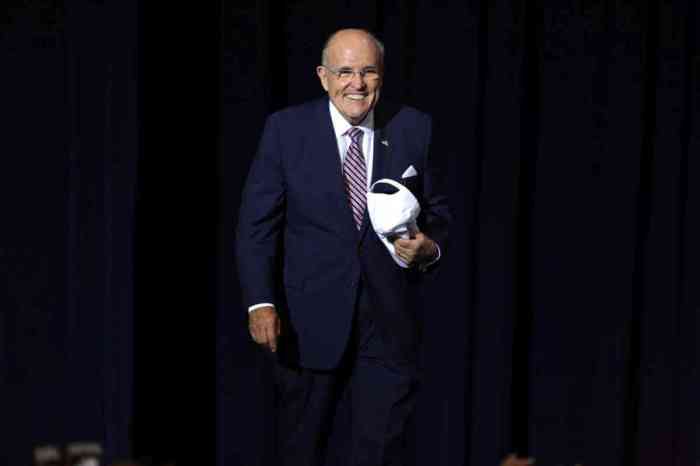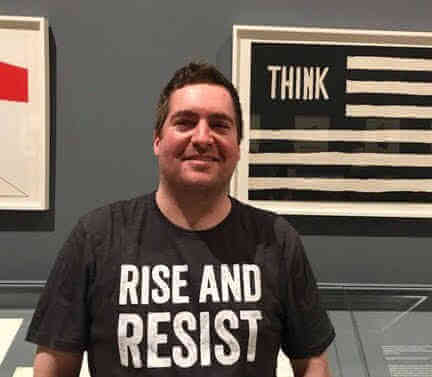BY NATHAN RILEY | Drug prohibition took it on the chin as voters supported tax-and-regulate referendums in four states that would allow adults to shop for pot.
While pot was liberated, Georgia passed a tax on adult establishments that creates a fund for sexually exploited children — encouraging a narrative where adult sexual activity is tied to child molestation and then provides funds for evangelical groups to offer a “safe harbor” for these “exploited” youngsters. It is a program that could ensnare LGBT youth.
But in a surprise, an ill-advised effort by Michael Weinstein of the AIDS Healthcare Foundation to require that adult performers use condoms in their performances was defeated. Major newspapers and the Democratic Party opposed the measure, which failed with 54.2 percent voting “No.”
The Arizona Republic reported that its state’s legalization referendum failed, though final results could take days. Its medical marijuana law remains in effect.
THE LONG VIEW
Massachusetts and Nevada also voted to legalize pot, and in Maine legalization has the edge, but a final tally is not complete.
In Montana, an effort by the Legislature to restrict medical marijuana patients to just three per doctor was overturned by referendum. Florida, in its second attempt, reached the constitutional threshold of a 60-percent vote to establish medical marijuana. Arkansas and North Dakota voters also adopted medical marijuana programs.
Georgia’s Amendment 2 allows the State Legislature to impose additional penalties in a court case in which a person is found guilty “of keeping a place of prostitution, pimping, pandering, pandering by compulsion, solicitation of sodomy, masturbation for hire, trafficking of persons for sexual servitude, or sexual exploitation of children.”
It is not clear from this language what the phrase “solicitation of sodomy” means, and it’s disturbing that the phrase is not directly related to either the nonconsensual or commercial sex Georgia already criminalizes.
The Georgia Legislature may also impose assessments on adult entertainment establishments. Revenue from these penalties, fees, and assessments — including those on the criminal activity described above — would be allocated to the Safe Harbor for Sexually Exploited Children Fund.
The big prize was California pot legalization, where a carefully crafted referendum won handily with 55.7 percent of the vote. In one stroke, nearly 40 million persons will live in a state with legal marijuana.
The pot revolution is proceeding with stunning speed. During President Barack Obama’s reelection in 2012, two states — Washington and Colorado — adopted legalization. In 2014, Oregon and Alaska legalized, and Washington, DC, allowed personal possession in the home.
Washington State has proceeded slowly since the 2012 referendum, but Colorado has eliminated marijuana arrests and enjoyed accelerating tax revenues that jumped from $76 million to $135 million between 2014 and 2015, according ARCView Research, a consulting firm for businesses interested in this new market.
ARC hails the growth possibilities of the legal market, while opponents of the legalization trend, especially Smart Approaches to Marijuana, believe it will create new corporate giants that will entice children into the habit just as big tobacco devised both advertising campaigns for the young and public relations campaigns disputing the link between cancer and smoking. SAM favors light penalties short of jail, a system not too different from the New York City’s approach of issuing tickets for pot possession.
The drafters of the California referendum, using funds provided by Facebook billionaire Sean Parker and expertise from groups like the Drug Policy Alliance, consulted experts, constituent groups — especially those representing the African-American and Latino communities most often jailed for drug law violations — growers (who have mixed feelings because they will now be taxed and regulated), and the many groups supporting legal pot.
The referendum takes an existing institution, the Bureau of Medical Cannabis Regulation, that had earned the confidence of many stakeholders and renames it the Bureau of Marijuana Control, giving it the responsibility for regulating and licensing marijuana businesses. The University of California System will be responsible for studying the impact of the new law, and funds have been earmarked to assess the impact on driver and pedestrian safety and other health issues.
For young people under 18, pot possession could lead to mandatory drug education classes — but no incarceration — while dealers working outside the legal framework could face local jail time of up to six months or a $500 fine. For adults, using marijuana will be legal provided they go to licensed stores.
Another provision of the referendum provides that the 6,000 prisoners serving time for marijuana offenses can seek release through a resentencing. Tax revenues generated by marijuana sales will help children with funds for after-school programs, job placement, and mental health treatment and drug prevention education.
Gavin Newsom, the lieutenant governor who hopes to succeed Jerry Brown in the 2018 election, bet his career on this referendum by vigorously supporting it. The State Democratic Party backed it, with Republicans making up the opposition.
Provisions for releasing marijuana offenders and for job training won strong support among communities hurt by the racist impact of the war on drugs. Legal pot and its taxes offer a way to break the school-to-prison pipeline, where the first offense for smoking pot is often the gateway to stiffer sentences on young people because they have “a record.”
The big benefit of legal pot to advocates is ending the harm caused by drug arrests. It creates a new relationship between police and public; the smell or sight of pot will no longer justify a search or an arrest.
Attorney Lauren Mendelsohn of Students for a Sensible Drug assessed the impact of the referendum’s victory by saying, “Legal marijuana products are not considered contraband or subject to seizure by law enforcement. This is huge.”
The referendums are evidence of the gap between political leaders and the public. State legislatures and elected officials have recoiled from drastic changes in drug laws even as polls showed that public attitudes have shifted since the Clinton presidency in the 1990s. This trend toward acceptance of pot tracks the growing comfort with LGBT folks, who found an important victory on an otherwise mostly barren election day with the defeat of North Carolina Governor Pat McCrory, who sparked outrage over the “bathroom” bill that takes aim at the rights of transgender people to use bathrooms consistent with their gender identity. The backlash against that legislation gave Democrat Roy Cooper a narrow victory, while Hillary Clinton fell short in North Carolina.
“Marijuana reform won big across America on Election Day — indeed it’s safe to say that no other reform was approved by so many citizens on so many ballots this year,” said Ethan Nadelmann, executive director of the Drug Policy Alliance. “But the prospect of Donald Trump as our next president concerns me deeply. His most likely appointees to senior law enforcement positions — Rudy Giuliani and Chris Christie — are no friends of marijuana reform, nor is his vice president.”


































